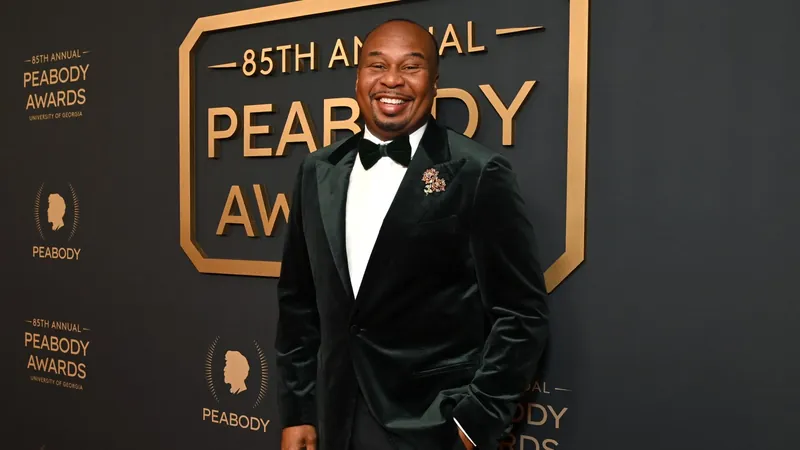
Trump's Bold Promise: No More 'Lecturing' the Middle East!
2025-05-14
Author: Yan
At a lavish event in Saudi Arabia, President Trump declared a dramatic shift in U.S. foreign policy, proclaiming an end to nation-building and interventionist lectures. "The world’s superpower will no longer be giving you lectures on how to live," he announced, igniting loud applause from the audience.
Trump's pronouncement marked a clear rejection of decades of American strategy in the Middle East, echoing grievances that have long resonated across cafes and living rooms from Morocco to Oman. "In the end, the so-called nation builders wrecked far more nations than they built," he emphasized during his powerful address at an investment conference.
His words rippled through mobile screens in a region still reeling from U.S. invasions of Iraq and Afghanistan, alongside the controversial support for Israel amidst a humanitarian crisis in Gaza. Many, including monarchists and dissidents, have voiced their criticisms.
On this trip to the Gulf, spanning four days and three nations—Saudi Arabia, Qatar, and the UAE—Trump was poised to secure over $1 trillion in investment pledges from the Gulf states. Yet, his comments went beyond economics; he expressed a fervent desire for Saudi Arabia to recognize Israel, following the lead of Bahrain and the Emirates, contingent upon the establishment of a Palestinian state.
Trump also conveyed his intention to negotiate a deal with Iran regarding its nuclear program, stating, "I never believed in having permanent enemies." A surprising photo-op with Ahmed al-Shara, the newly appointed leader of Syria and a former rebel, sent shockwaves across the region, especially given al-Shara's past in a successful uprising against Bashar al-Assad.
In the heart of Saudi Arabia, where he once labeled Islam as hateful, Trump instead praised the kingdom, showering compliments on Crown Prince Mohammed bin Salman. His warm approach sharply contrasted with President Biden's previous criticisms of the Crown Prince over human rights violations.
Amid cheering crowds, Trump criticized past presidents for attempting to judge foreign leaders' morals and impose justice. "Far too many American presidents have been afflicted with the notion that it’s our job to look into the souls of foreign leaders," he asserted.
Ibrahim Almadi, whose father—a critical voice on social media—was arrested in Saudi Arabia, hoped Trump would address human rights issues during his visit. Despite his pleas, Trump’s administration remained silent on such matters, with critics labeling his speech a public relations exercise benefiting the Crown Prince.
While some applauded his tone as a progressive pivot, others viewed it as mere rhetoric, arguing Trump was primarily focused on securing American interests. "The U.S. prioritizes its own interests," human rights lawyer Negad el-Boraie noted, emphasizing the stark nature of Trump's diplomatic approach.
As Trump wrapped up his address to a standing ovation, he left a complex legacy: one that intertwines financial incentives with nuanced geopolitical messaging, leaving many in the region pondering what’s next.


 Brasil (PT)
Brasil (PT)
 Canada (EN)
Canada (EN)
 Chile (ES)
Chile (ES)
 Česko (CS)
Česko (CS)
 대한민국 (KO)
대한민국 (KO)
 España (ES)
España (ES)
 France (FR)
France (FR)
 Hong Kong (EN)
Hong Kong (EN)
 Italia (IT)
Italia (IT)
 日本 (JA)
日本 (JA)
 Magyarország (HU)
Magyarország (HU)
 Norge (NO)
Norge (NO)
 Polska (PL)
Polska (PL)
 Schweiz (DE)
Schweiz (DE)
 Singapore (EN)
Singapore (EN)
 Sverige (SV)
Sverige (SV)
 Suomi (FI)
Suomi (FI)
 Türkiye (TR)
Türkiye (TR)
 الإمارات العربية المتحدة (AR)
الإمارات العربية المتحدة (AR)